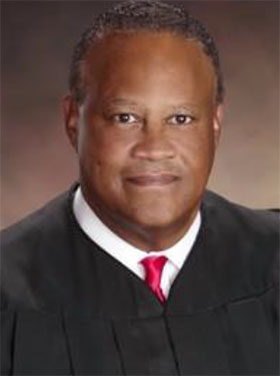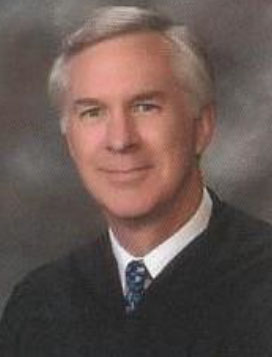Criminal Law
Views From The Bench On Sentencing Representation: Part 9

By Alan Ellis
This article is republished with permission from Law360
“What is best for the victim?” asked U.S. District Judge Lawrence J. O’Neill. “What is best for the community? What is best for the defendant?”
U.S. District Judge Morrison C. England Jr. advised: “If you have a client who needs treatment, have a treatment plan whereby you ask for a lengthy continuance of sentencing so you can see what the treatment program does for him.”
“Wait,” I interrupted. “I need to write this down.”
I was engaged in a discussion with the two judges at the annual retreat of the Eastern District of California Bench Bar Conference, held last fall at Tenaya Lodge in Yosemite National Park. David W. Dratman, a veteran Sacramento criminal defense lawyer of over 39 years, and I had been invited to interview Chief Judge O’Neill of Fresno and former Chief Judge England of Sacramento. (The Federal Defender recorded the 90-minute Q&A session on video, which is being edited by documentary filmmaker, sentencing video specialist and defense attorney Doug Passon.)
The prospect of the interview was especially appealing because both judges are known for handing down stiff sentences. For example, “The Almanac of the Federal Judiciary” characterized Judge England this way: “He is pretty harsh. He defers to the government.” “He’s a very harsh sentencer.” “He’s not going to bend much.” The almanac’s comments about Chief Judge O’Neill were similar: “He’s definitely a harsh sentencer.”
Asked early on about the importance of a sentencing memorandum, Judge O’Neill replied that he looks for one that is “fair and balanced. … You should include the positives and the negatives. … Don’t sugarcoat your client. It doesn’t work and takes away from your credibility.” Judge O’Neill cautioned that a lawyer who has done a thorough sentencing memo shouldn’t expect to add much at the hearing.

At that time, Judge O’Neill said, “I’ll be looking to the government to respond and, of course, the defense lawyer’s reply.”
Judge England noted that “when I take the bench I am ready to hear ‘how we tie this all up,’” and a sentencing memorandum can accomplish that if it’s written in a coherent, easy-to-read manner and “just long enough to get the story out.” As advice to defense attorneys, he suggested that you copy the probation officer with your sentencing memorandum because sometimes it causes them to change their mind before they make the final recommendation.
Neither judge appreciates wasting space in the sentencing memorandum by discussing Booker and its progeny — “Don’t just spit out the law,” is how Judge England put it. He recommended that attorneys take each of the 18 U.S.C. §3553 factors — especially those dealing with the nature of the offense, the history and characteristics of the defendant, and sentencing disparities —and apply them to their client.
In multidefendant cases, in particular, Judge England says, it’s helpful to distinguish between relative culpability and criminal history.
Judge England was asked if he was interested in what other judges have done in similar cases. “No,” he said, “that’s what I call ‘In re Down the Hall.’” Such discussions might be helpful “only if it is a unique case of first impression and something that I’m looking at how to figure out.”

When asked if he had any pet peeves about defense lawyers, Judge England described those who are “true believers” and give every defendant “the full shot.” In such instances, his comment was: “Where’s your credibility? Baby rattlesnakes are the most dangerous creatures in the world. They don’t know how much poison to give, they give you the “full shot” every time.”
Credibility with a judge can be helpful to the defendant, and it is something that defense lawyers should build over the long term through more realistic responses on behalf of their clients.
Judge O’Neill said he gets a bit peeved when all the defense talks about is the defendant’s horrid childhood and how this background factored into the crime. When the defendant gets out of custody, he’s still going to have this same background, the judge points out. So, what does the defense propose to make sure this person will not continue committing crimes?
At least part of the answer to that question might be that the offender needs to step up and take responsibility for the crime rather than lean on such mitigating circumstances as an unfortunate youth. “I really take that to heart,” said Judge England. “If you’re going to accept responsibility, then accept responsibility.”
That means allocution takes on great importance. “It can make or break where I am going,” he explained. “I have a pretty good idea when I take the bench, what sentence I am going to impose. Then I listen to arguments and allocution. The needle moves during allocution, up or down.” Judge England recommended that defense lawyers explain the value of allocution to their clients; and then let them decide what to say.
Judge O’Neill adds that while defense lawyers must be careful not to script their clients’ allocutions, it might prove useful to have them address some of the all-important five W’s: “Why did the defendant do what he did? What has he learned? What is he going to do about it? Why is he unlikely to do it again? Why should he get a break?”
Judge England opined that one of the biggest mistakes defense lawyers make is not having their clients answer the question, “What were you thinking when you did what you did?” “All too often,” in Judge England’s view, “the defendant will say a few words and the lawyer will interrupt saying, ‘Your Honor, what he really means is …’ That is not helpful. I know it is stressful to speak in open court, but I really want is to hear from the defendant.”
Judge O’Neill agreed on the importance of allocution. “There has to be some acknowledgement of what happened, what the effect was, and where we are going with it. I want to hear from the defendant. It’s a huge mistake not to allocute.
“I also want to know what the person has been doing since the crime. Is he in treatment? Has he paid restitution? When a defendant says he cannot afford to pay any restitution, my next question is, ‘Do you have a cellphone? If you do, you can afford to pay something?’ If the defendant is out of custody, has he gotten a job? Is he working? Is he supporting his kids? Is he going to school? Has he done anything to better himself? Is he showing me that he has really taken to heart everything that happened? Has he paid some sort amount of restitution? Now when the lawyer says the crime was an aberration, it’s more credible.”
Queried about what he would like to see in letters of support, Judge O’Neill had words of caution for defense attorneys. “You see lawyers who send out requests for essentially form letters. Those are worthless. Similarly, a letter that says, ‘I have known the client for years and he could not have done something like this, is pointless.’ A letter that says ‘[I’ve known him for a long time and] I can hardly believe that he did this’ is quite different.” In Judge O’Neill’s eyes, such a supporting letter is evidence of the defendant’s aberrant behavior, not the writer’s disdain for a system that is wrongfully prosecuting the defendant.
Judge England added that another effective letter is one from the defendant’s employer, indicating he is aware of what happened and understands the need for punishment, but he will have a job open for the defendant when he gets out. Such a letter shows that the defendant has a network of support to make sure he will succeed — to Judge England, that is the point of character letters.
When the discussion turned to the role of mental health experts, both judges agreed that the professionals who are engaged in ongoing treatment with the defendant have more credibility. Unlike “hired guns,” no one is paying their fee to testify, observed Judge O’Neill, who also noted that a treating professional is not necessarily less credible because he may more likely be an advocate for the defendant. “I find them willing to help and cure if possible, but also being realistic about the treatment and what they are seeing.” he said.
We queried both judges on the topic of sentencing videos, which are becoming increasingly popular.
Judge O’Neill told us that while skeptical at first, when he saw his first such video, he was very impressed and it impacted his sentence. Judge England responded that in his opinion, if the people are scripted and the dialogue seems rehearsed, or if the videos are primarily intended to play with a judge’s heartstrings, then they are unlikely to be worth much. Using young children to achieve the heartstring effect definitely should be avoided. “We know what they are going to say, we know that it’s awful for them,” he said. “My first question to the defendant would be, ‘Didn’t these children exist when you were committing the crime? Why are you asking me to consider this when you didn’t?’”
Since both judges are former state court judges, we asked them whether their overall sentencing philosophy had changed since they took the federal bench. Judge O’Neill said he was a much harsher sentencer in state court, but has become more sympathetic now, particularly when drug addiction is a factor. He recalled that a defendant recently appeared before him and stated, “You know, Judge, I don’t care what you do with me. I’ve just had it.” His lawyer then proposed a well-crafted drug treatment program for him and asked that sentencing be continued until after the defendant had completed the program. Judge O’Neill agreed to the request. It was at this point that Judge England suggested, “If you have a client who needs treatment, have a treatment plan whereby you ask for a lengthy continuance of sentencing so you can see what the treatment program does for him.”
Judge England urged defense attorneys to keep him informed about how a person he’s sentenced has fared subsequent to release. “It would be good to know that if I’ve given anyone a break, things have worked out. If I did [know], I might be more inclined to do the same in the future.”
Judge O’Neill said he wants lawyers to talk more about the victims. “I foresee a day when defense counsel presents more and more videos, and then prosecutors will do the same thing and have victims talk to us,” he predicted. “It’s important that fairness be across the board. Victims have constitutional rights, too.”
Judge England offered this suggestion to younger, inexperienced defense attorneys: Go into a busy courtroom and watch some pros who have done it many times, are good at it and are effective. If you’ve not appeared before a particular judge, go watch one of his sentencings, especially if it is a multidefendant case where your client has yet to be sentenced. “Lawyers are often reluctant to ask for help because they are embarrassed,” he said. “That’s an enormous mistake and a disservice to their clients.”
Conclusion
- Credibility with a judge can be helpful to the defendant, and it is something that defense lawyers should build over the long term through more realistic submissions on behalf of their clients.
- Lawyers should be thinking outside the box for solutions at sentencing. Strategies such as seeking sentencing delays in favor of intensive treatment, presenting a well-produced sentencing video, or writing an impressive, thoughtful sentencing memorandum that tells a story and avoids boiler-plate citations will go a long way to getting the results you want.
- Take Judge England’s advice and sit in on another one of your sentencing judge’s hearings, particularly if it involves a co-defendant. Judge Robert Scola of the Southern District in Florida in Miami recommends this also.
- Make a record. If you’ve not waived your right to appeal, the court of appeals may take a more sympathetic view than the sentencing judge and reverse and remand for resentencing. An empathetic panel may cause the court of appeals to take a closer look at the trial issues in the case if there are any.
- Make a principled sentencing proposal. Don’t just ask for probation conditioned upon home confinement, treatment, community service, etc. Consider adding community confinement as a condition also to home confinement, intermittent confinement with home confinement at a local jail on weekends.
- Spell out your proposed treatment program and a worthwhile community service proposal.
- Start early. As my colleague Alan Silber of Hackensack, New Jersey, often says when asked how soon he starts preparing for sentencing: “As soon as the check clears.”
- And I often say, if you want an atypical result, take an atypical approach.
Alan Ellis, a past president of the National Association of Criminal Defense Lawyers, is a criminal defense lawyer with offices in San Francisco and New York. He practices in the areas of federal sentencing and prison matters, and was awarded a Fulbright Senior Specialist Award by the U.S. State Department in 2007 to conduct lectures in China on American criminal law and its constitutional protections. The opinions expressed are those of the author(s) and do not necessarily reflect the views of the firm, its clients, or Portfolio Media Inc., or any of its or their respective affiliates. This article is for general information purposes and is not intended to be and should not be taken as legal advice.
